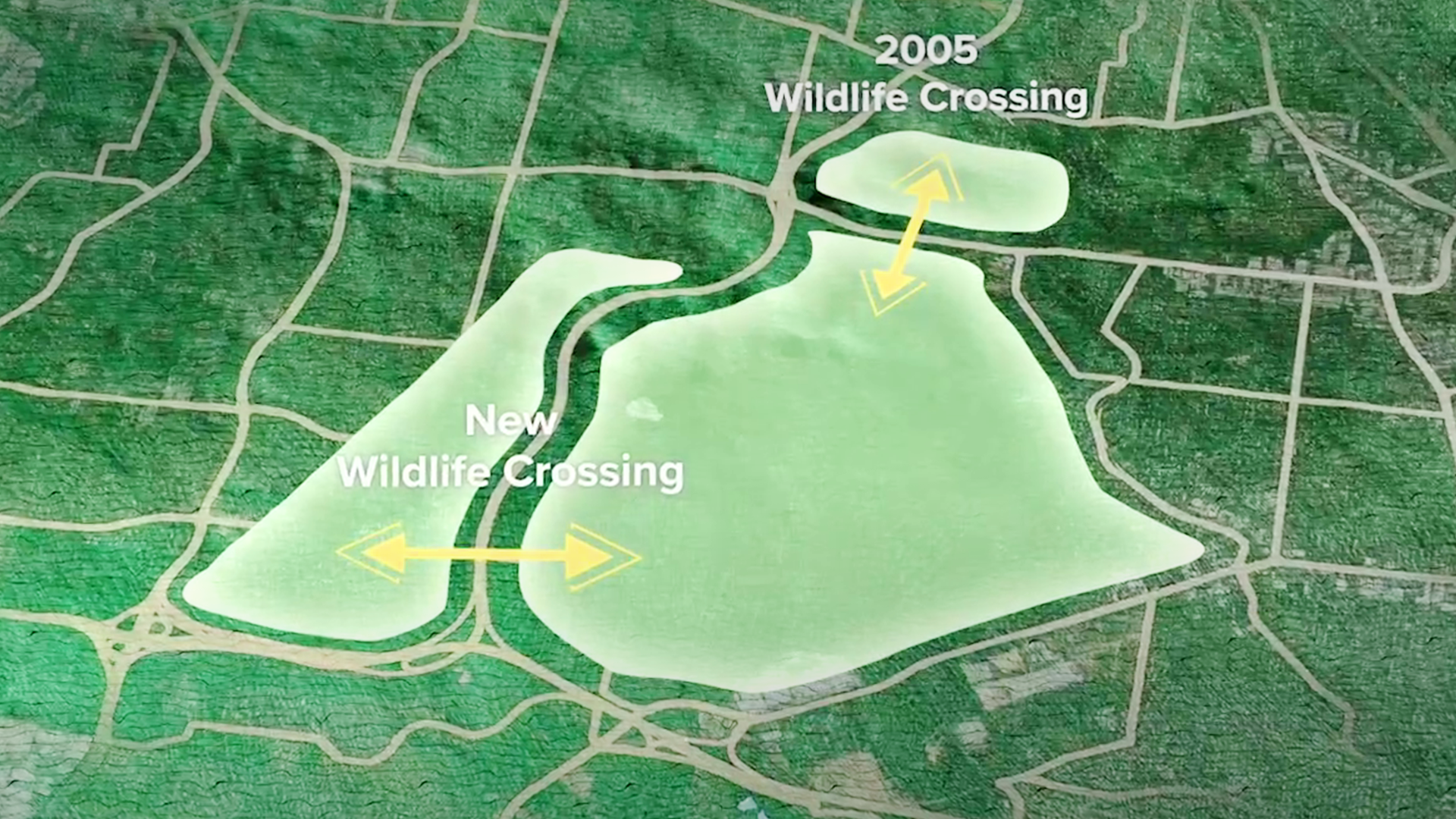The division of a large, continuous habitat into smaller, disconnected patches, through natural disasters like fire or human activity like road-building is known as habitat fragmentation. The resulting habitat loss pushes many populations into isolated pockets, where they have less access to food, shelter, and potential mates. On a species level, these stresses—including the loss of genetic diversity through inbreeding—increase the risk of extinction, especially for specialist species like koalas. On an ecosystem level, habitat fragmentation reduces biodiversity and impairs key ecosystem functions like nutrient cycling.
